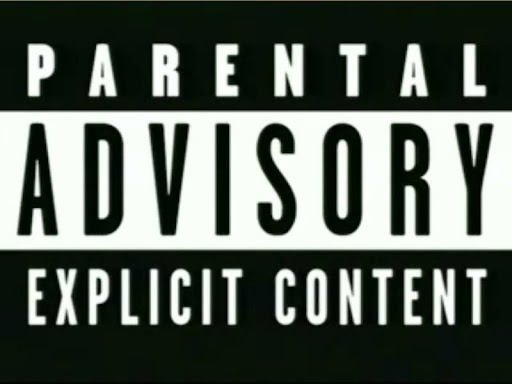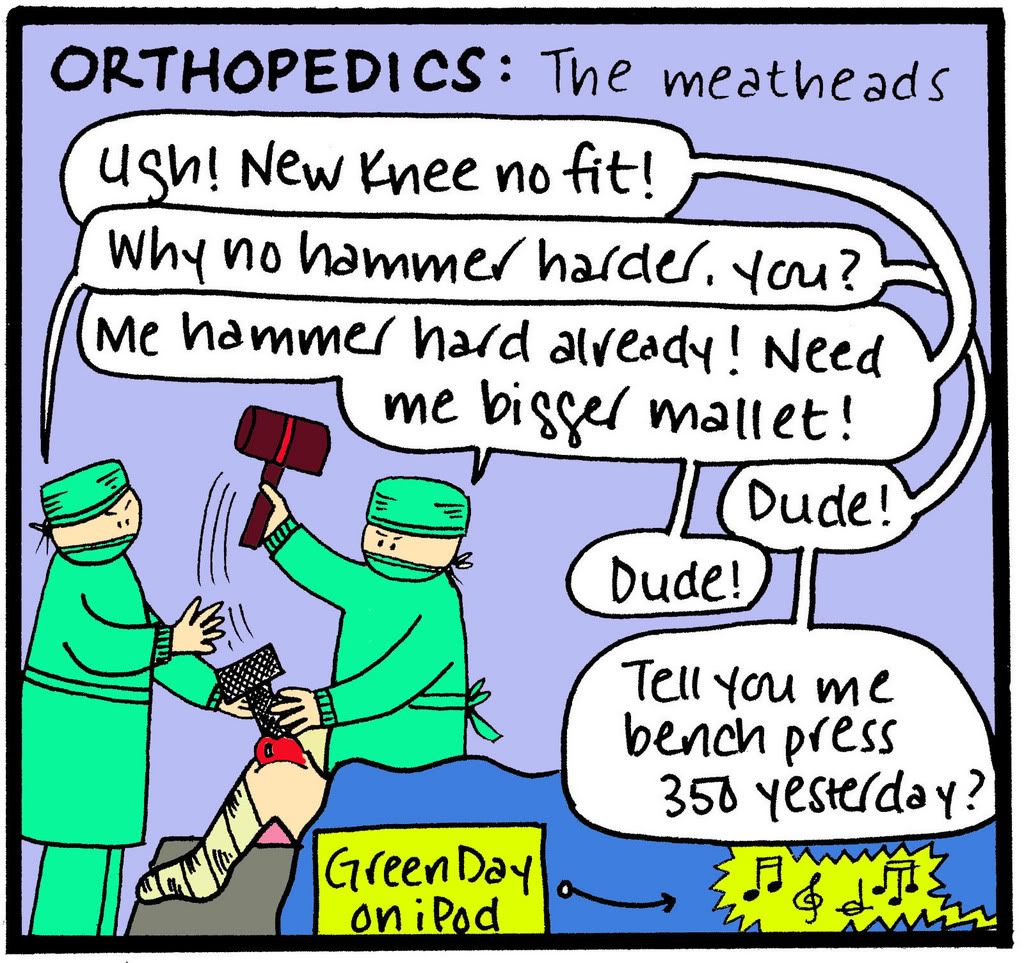“A lot of truth is said in jest.”
~Eminem

Socratic questioning has been at the heart of clinical medical education many years. Traditionally, the educator asks a question so that the original question is responded to as though it were an answer. The central technique of Socratic questioning is known as
elenchus, meaning a
cross-examination for the purpose of refutation. In medical school, this technique of education is more commonly referred to as
pimping. This style of teaching is seen as a way of the educator showing his/her greater knowledge of a subject. Depending on how and where it is enacted, pimping is perceived as a unique kind of questioning practice with a wide range of intentions from knowledge checking to humiliation. Some educators use elenchus for knowledge checking; others educators pimp. The students perspective of this style is the same regardless of the intended purpose.
The earliest use of the term pimping dates back to 1628 in a statement made by Harvey in London. Harvey, feeling his students lacked enthusiasm for learning the circulation of the blood, stated:
"They know nothing of Natural Philosophy, these pin-heads. Drunkards, sloths, their bellies filled with Mead and Ale. O that I might see them pimped." In Heidelberg (1889) a series of questions titled "
Pumpfrage" or "pimp questions" were recorded by Koch for use on his rounds. And the first American reference to this was by Flexner in 1916. He wrote about his visit to Johns Hopkins: "
Rounded with Osler today. Riddles house officers with questions. Like a Gatling gun. Welch says students call it 'pimping.' Delightful."
Now, if we look truly at the Socratic questioning, its purpose is not politically motivated. It is for the purpose of educating and to improve the students understanding of a subject through questioning. On the other hand pimping can be more politically motivated. Many times pimping is used as a way for an attending to show his/her knowledge. Knowledge is power. Pimping sets the hierarchy.
In the art of pimping, questions should come in rapid succession and be somewhat unanswerable. Questioning can be grouped into approximately 6 categories:
- Arcane points of history - facts not taught in medical school that have no relevance to medical practice.
- Teleology and metaphysics - questions that lie outside the realm of conventional scientific inquiry. Most often found in the National Enquirer and addressed by medieval philosophers.
- Exceedingly broad questions - for example, what is the differential for a fever of unknown origin. These questions are best asked at the end of conference. Regardless of how many good points the student makes, s/he will always be criticized on the points missed.
- Eponyms - questions like, what is the Hoffa fracture? These are usually dated terms that should be struck from memory.
- Technical points of basic science research - enough said. These technical points, although showing academic prowess, have no clinical relevance.
- The Devil's Advocate (my personal favorite) - with this technique, the educator takes the opposing view. This challenges the learner to understand the strengths and weaknesses of both views. For learners, defending against this takes experience, skill, and understanding. Novice learners are easily swayed away from their correct thought process down the wrong path.
For a master pimp, these are important categories to understand. Their utilization, while at a nursing station or in front of many naive on lookers, can gain the questioner many power points. It is like flexing your muscle in the gym mirror in front of the elliptical machines.
While understanding the ways of pimping tactics is interesting, it is more important for the student to understand the classic defense strategies to stymie the master pimp. When using these tactics, the student must be careful not to anger the questioner making the situation worse. If done improperly or if the technique is not properly disguised, it will quickly be countered with quickly countered. There are several classic techniques: the stall, the dodge and the bluff.
- The stall - this is commonly used in x-ray conferences. The student typically looks at the study squinting, and bring their face so close their nose almost touches it. Then the study characteristics are described. "This is an AP, Sunrise, Notch, and lateral in a skeletally mature patient dated January 5, 2007." The next step is to describe what is not present. It is important interject pauses, face holding, and pointing, as diverting gestures. The hope with this technique is that the questioner will fatigue and ask someone else.
- The dodge - this is a way of avoiding the question and wasting time. The most common ways this is applied are by answering the question with a question and/or answering a different question.
- Hand gesturing - this is making reference to hot topics in medicine without supplying either substance, detail, or explanation.
- Feigned erudition - answering as if you have an intimate understanding of the literature and a cautiousness born of experience. For example, "To my knowledge, that has not been addressed in a randomized prospective controlled study." These statements are usually made after clearing the throat, standing professorially, and while holding something, coffee cup, glasses, etc.
- Higher authority - this is done by referencing someone higher up in the hierarchy or another institution. Using a senior attending as a reference is common. "In my discussion with Dr. x, he stated ...." It is also common to mention another institution where the student may have trained. "At Duke we .... "
Now, once the offensive questioning tactic is put into play and the student's defense is chosen, where do the errors occur. Probably the most common error for the inexperienced student is the misuse of defensive tactics. When a student shows his/her hand early, it allows the educator to see their lack of understanding of the subject and is like blood in the water for some educators. These are easy pickings for malignant educators. Just as problematic as improper use of a defensive tacts is not having good control of the "
Brain Mouth Filter." Although knowledge is power, welding a little knowledge without an understanding will get a novice in deeper than s/he can handle. Once a novice learner gains some experience and knowledge, they begin to overstep their understanding and bring up other topics and controversies without being asked. Students that has a running dialog of his/her thoughts, it opens them to more questioning.When this is done, one of 2 things can happen: the student can get an endless onslaught of questioning there by saving all others from questioning or the team will share in the beating. The learner must develop ways of diverting questioning and putting a closure to the questions. Filtering their thoughts prior to speaking is a must.
In the end, the pimping phenomenon is a game. The educator is the game master controlling the many of the parameters of play. With time, a learner will develop both a knowledge base and thought process. They develop there own styles of processing and answering "pimp" questions. Hopefully at end game, education occurs.
“Sometimes questions are more important than answers.”
~Nancy Willard












